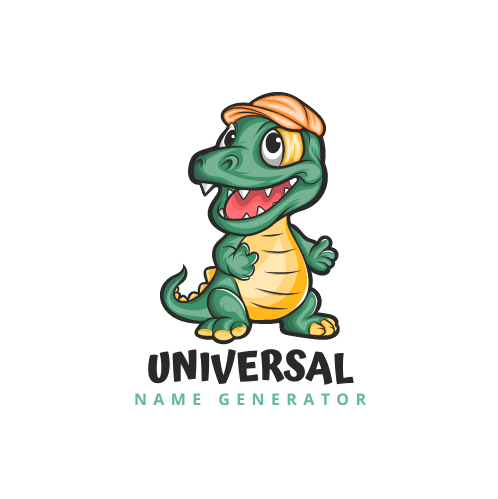The concept of scarcity is simple: the scarcer the better. However, behind this apparently natural idea, we find a tangle of behavioural tendencies, cognitive biases, and neuronal reactions that drive our choices unconsciously. Scarcity can usurp your sense of value, whether you are choosing a pair of limited-edition sneakers, an in-game reward, or you are gambling at an online casino where you use a live dealer, all in a way that you would not immediately recognise.
The Psychology of Scarcity
Human beings are also programmed to react to abundance. Scarcity makes our brain perceive something as more preferable, even though we may not need it. Psychologists refer to it as the scarcity principle, which is the basis of flash sales, immersive online events, and other marketing strategies.
The scarcity feeds into the most primordial instincts, urgency, exclusivity, and fear of missing out (FOMO). The scarcity of an item or opportunity creates pressure in us to take swift action and to act at times without considering the consequences. This does not just occur in the case of physical objects, as digital spaces, such as gaming and online casinos like 22Casino Germany, often use scarcity signals to draw greater attention without directly advertising them.
Cognitive Biases in Play
Scarcity does not merely stimulate urgency; it capitalises on the vagaries of the brain. An example of this is loss aversion, which causes the fear of loss to be worse than the enjoyment of gain. Anchoring effects can influence us into making comparisons of options with biased reference points, and social proofs can exaggerate our perception of value. When many people want something, it must be valuable to want it. To put it briefly, scarcity not only renders things rare but also gives them an emotional charge.
Neuroscience of Scarcity: Dopamine, Decision Making and Value.
The human brain is geared towards rewarding experiences, and scarcity is a strong stimulus. Restricted opportunities trigger the activity of dopamine in the nucleus accumbens, a part of the brain that becomes particularly active during pleasurable activities. Even a small reward can be extremely gratifying in this dopamine loop.
The prefrontal cortex, which is the seat of decision-making, also plays a role in scarcity. The twist, however, is that scarcity may saturate our cognitive resources, which adds to fatigue in decision-making. When faced with a multiplicity of options that are too many — or when an option appears to be only temporary — we behave more on instinct than on reason. Therefore, there is a tendency to make impulsive decisions.
Neuroeconomic, perceived value is actually inflated by the perception of scarcity. By being restricted in terms of access, your brain is informed of the importance, allowing you to prefer choices of scarcity despite them being objectively inferior to choices of abundance.
Digital Scarcity.
It is not just a classroom experiment where scarcity applies, but we can find scarcity everywhere online. E-commerce flash sales and mobile app variable rewards are just a few examples of digital spaces that prey on scarcity to keep users engaged. The trick here is immediate gratification: the perceived reward is immediate when there is a limited amount available, resulting in an immediate, compulsive interaction.
Digital Scarcity Tactics
Sites such as 22Casino Germany covertly use scarcity signals on the site. Online casinos featuring live dealers, such as live dealer online casinos, may offer special tables or jackpots with time limits. Although the games themselves are skill- and chance-based, scarcity signals add excitement, increase digital interaction, and form a dopamine loop that makes players return.
Other online venues also use such strategies:
E-commerce: Flash sales, countdown timers and only X left in stock messages.
Gaming: Limited-time event, loot boxes that are only found on rare occasions and random loot rewards.
Social features: 24-hour disappearing stories, 24-hour polls or badges.
| Platform Type | Scarcity Strategy | Psychological Effect | Example |
| E-commerce | Flash sales, limited stock | Urgency, impulse buying | Amazon Lightning Deals |
| Gaming Apps | Limited-time rewards, rare loot | FOMO, dopamine loop | Seasonal mobile game events |
| Online Casinos | Exclusive live dealer tables, jackpots | Perceived value, digital engagement | 22Casino Germany live dealer online casino |
Knowing these processes, you can begin to realise why a rare opportunity is so very tempting–and why our brain can sometimes confuse scarcity with value.
Practical Implications: The ability to perceive Scarcity Cues.
The only way to get yourself out of trouble is to be aware of it. Perceiving scarcity can be used to address decision fatigue and impulsivity. Ask yourself:
- Is it the rarity or the real value I am responding to?
- Am I being influenced to make this selection by the limited-period offer, rather than my preference?
- What effect does digital design have on my interaction, whether instant gratification or a dopamine loop?
Although this is a virtual casino, studying these behavioural factors, independent of demographics, will be insightful into the interaction between human psychology and digital design. These values can be demonstrated in 22Casino Germany, where a regulated, recreational setting serves as a useful prism in which to study scarcity without becoming one of its victims.
Scarcity is not just a marketing gimmick; it is a human inherent prism through which we understand value. We gain insight into our decisions, habits, and the digital worlds that continually challenge them by learning about the cognitive and neurobiological mechanisms underlying this process.
